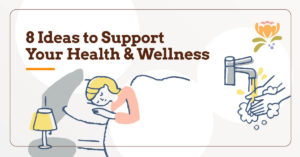
Medical vs. Non-Medical Home Care in Connecticut
There are two basic types of home care providers in Connecticut – Medical & Non-medical. Generally medical homecare agencies provide home health care, such as skilled nursing services, and usually clients requiring such care are in an acute stage of illness. Typically these agencies are referred to as VNA’s (Visiting Nurse Associations) and are Medicare certified. They must also be licensed with the State Health Department and meet stringent regulatory requirements. The second type of home care agency is non-medical and they provide support services to clients such as homemaking, companionship, and sometimes assistance with personal care. Non-medical home care agencies are required to be registered with the State of Connecticut Department of Consumer Protection.
Here are some resources to help you narrow your choices when selecting and screening a non-medical home care provider in Connecticut:
- Look in the phone book or on the web under assisted living at home, homecare, home health care, or elder care. You can also contact your local Chamber of Commerce to ask if they can refer you to a local member.
- Call your nearest Area Agency on Aging. Most reputable agencies will have a contractual relationship with them for certain services.
- Ask health care professionals or others who frequently have contact with these types of agencies – such as discharge planners at hospitals, nursing homes, rehabilitation facilities, Geriatric Case Managers, and social workers. Ask a VNA nurse if she can recommend a reputable agency.
Once you’ve narrowed down the list, make another list of questions you want to ask and set aside some time to make some calls. A good agency will ask you questions too, as they try to best understand your needs.
Here are some important questions to add to your list:
- How long have you been in business? More established businesses are your best option vs. a start up operation.
- How many caregivers does the agency employ? Generally more is better…because they will have adequate resources for a sick call replacement or if you want to make a switch in caregivers.
- Do you employ your own staff or will you refer us to a caregiver that we will pay directly and the agency will get a fee? You want to make sure that the agency is responsible for all state and federal taxes, social security, unemployment, and workers’ compensation insurance which is usually the case with a company that employs their own staff, and that you do not get into a predicament where you pay the caregiver directly and therefore become the employer. In other words, the best way to avoid the risks associated with employment law, taxes, and replacement coverage is to use a legitimate home care agency that employs and supervises its own staff.
- Is the business registered with the Department of Consumer Protection? (as of October 1, 2006, it’s the law in Connecticut)
- Are the staff bonded and insured?
- How are the staff trained – especially if they are going to be needed to assist with personal care?
- What kind of support does the agency have during the off-hours – i.e. are you available 24/7?
- What are the fees? Most agencies will charge by the hour, but ask about any extra charges. It is actually required by legitimate agencies to have a contract or service agreement that will spell all of this out for you – ask them to send you a copy.
- How are the staff screened? Agencies should do a comprehensive background check and reference checks on all staff.
Once you have done all of your research and are ready to make a decision, avoid settling on the least expensive home care agency. Make sure you feel good about the agency’s reputation, your interactions with agency staff, and their ability to care for you or your loved one.
For more information on home care options in Connecticut, or to speak with one of our staff members, feel free to call us at 203.634.8668, contact us via the web, or email a member of our team.





